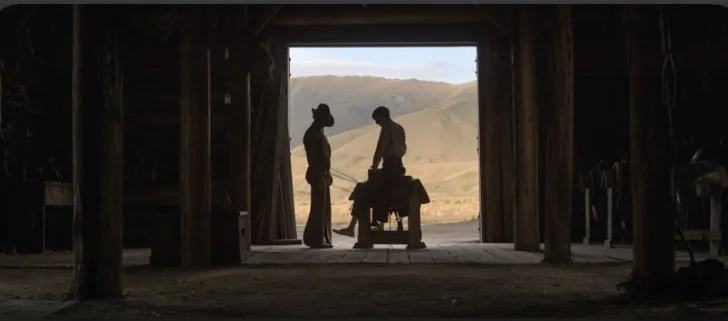What a strange year at the movies this has been.
Of the 25+ years that I’ve religiously been watching and covering movies, I don’t think I’ve experienced a worse one than this. Going to Cannes in July seemed like a rejuvenation and more than half of my ten best list is composed of films that premiered there.
However, when the fall movie season hit, it was such a letdown, with the only film coming out of TIFF, Venice and Telluride meriting praise was Jane Campion’s “The Power of the Dog.” Everything else was either overpraised or didn’t exceed expectations.
I saw close to 200 new releases in 2021, many in theatres, but a record amount on streaming. Four of the movies on my top 10 list were from Netflix and one from Amazon.
I was so disappointed by the 2021 films that I ended up rewatching a few movies these last few weeks, to see if there was maybe a spark I missed the first time around. Paul Schrader’s “The Card Counter” turned out to be a fuller, more enriching experience on repeat viewing, ditto Leos Carax’s “Annette,” which still could have used a good 15 minute snip in its runtime. I still think Wes Anderson’s “The French Dispatch” hits its peak with the first story and then disappoints with its latter two tales.
And yet, mainstream American critics were more than willing to go along and champion mediocrity. What gives? Is it because today’s film writers are so young and uneducated to the glorious history of the medium? Are they more-than-willing to cancel past classics to score brownie points on Twitter, and ready to champion mediocre films that abuse by their political ideologies?
We’re living in a very interesting time right now in film criticism. Back in the ’90s, or even ten years ago, it was such a different spectrum…and now that political theory [has] snuck in, any film you watch, you have to judge politically, and that’s the way it’s going. And it’s very infuriating. Even though art should be political in a way.
Oddly enough, some of the best movies I saw this year, especially at film festivals, won’t be released until later this year. Those include Audrey Diwan’s “Happening,” Michel Franco’s “Sundown,” Ninja Thyberg’s “Pleasure,” Justin Kurzel’s “Nitram,” Gaspar Noe’s “Vortex,” and Asghar Farhadi’s “A Hero.”
Despite the current state of mediocrity we find ourselves in, I managed to find around a dozen or so movies that felt like reinventions of the cinematic language. These were films afraid to take risks and willing to rile you up for the sake of art. We need more of this state of mind in 2022: artists willing to stand up and pull the middle finger to the mainstream.
1. The Power of the Dog (Jane Campion)
2. Red Rocket (Sean Baker)
3. Licorice Pizza (Paul Thomas Anderson)
4. Annette (Leos Carax)
5. Memoria (Apichatpong Weersethakul)
6. France (Bruno Dumont)
7. Benedetta (Paul Verhoeven)
8. The Killing of Two Lovers (Robert Machoian)
9. Titane (Julia Ducournau)
10. Passing (Rebecca Hall)
10. The Lost Daughter (Maggie Gyllenhaal)
12. Bad Trip (Kitao Sakurai)
13. Petite Maman (Celine Sciamma)
14. The Last Duel (Ridley Scott)
15. Beginning (Dea Kulumbegashvili)
16. Quo Vadis Aida (Jasmila Žbanić)
17. PVT Chat (Ben Hozie)
18. In the Same Breath (Nanfu Wang)
19. The Souvenir Part II (Joanna Hogg)
20. Bergman Island (Mia Hansen-Love)






